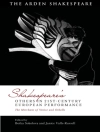The national cinemas of Czechoslovakia and East Germany were two of the most vital sites of filmmaking in the Eastern Bloc, and over the course of two decades, they contributed to and were shaped by such significant developments as Sovietization, de-Stalinization, and the conservative retrenchment of the late 1950s. This volume comprehensively explores the postwar film cultures of both nations, using a “stereoscopic” approach that traces their similarities and divergences to form a richly contextualized portrait. Ranging from features to children’s cinema to film festivals, the studies gathered here provide new insights into the ideological, political, and economic dimensions of Cold War cultural production.
สารบัญ
Acknowledgments
Introduction
PART I: CULTURAL POLICY AND CINEMA
Chapter 1. From Soviet Zone to Volksdemokratie: The Politics of Film Culture in the GDR, 1945-1960
David Bathrick
Chapter 2. Czechoslovak Culture and Cinema, 1945-1960
Jiří Knapík
PART II: PRODUCTION AND CO-PRODUCTION
Chapter 3. “Veterans” and “Dilettantes”: Film Production Culture vis-à-vis Top-down Political Changes, 1945–1962
Petr Szczepanik
Chapter 4. Barrandov’s Co-Productions: The Clumsy Way to Ideological Control, International Competitiveness, and Technological Improvement
Pavel Skopal
Chapter 5. Co-Productions (Un)Wanted: 1950s East/West German Film Collaborations and the Impact of Sovietisation on DEFA’s Prestige Agenda
Mariana Ivanova
Chapter 6. No TV without Film: Production Relations between the DEFA Studios and Deutscher Fernsehfunk
Thomas Beutelschmidt
PART III: NON-FICTIONAL CINEMA
Chapter 7. Military Film Studios before 1970: Between Cinematic Avant-Garde and Films on Command
Václav Šmidrkal
Chapter 8. Socialism for Sale: Czechoslovak Krátký film, Custom-Made Film Production, and the Promotion of Consumer Culture in the 1950s
Lucie Česálková
PART IV: CHILDREN’S CINEMA
Chapter 9. Between Magic and Education: the First Fairy Tale Films in the GDR
Christin Niemeyer
Chapter 10. Children’s Films: Between Education, Art and Industry
Lukáš Skupa
PART V: FILM FESTIVALS
Chapter 11. Decreed Open-Mindedness: The Leipzig Documentary and Short Film Festival in the 1960s as an example of the self-representation of the East German State
Andreas Kötzing
Chapter 12. National, Socialist, Global: The Changing Roles of the Karlovy Vary Film Festival, 1946–1956
Jindřiška Bláhová
PART VI: DISTRIBUTION AND RECEPTION
Chapter 13. Cinema Cultures of Integration: Film Distribution and Exhibition in the GDR and Czechoslovakia from the Perspective of Two Local Cases, 1945-1960
Kyrill Kunakhovich and Pavel Skopal
Chapter 14. A Decade between Resistance and Adaptation: The Leipzig University Film Club (1956-1966)
Fernando Ramos Arenas
Chapter 15. Screening the Occupier as Liberator: Soviet War Films in the SBZ and the GDR, 1945-65
Lars Karl
Filmography
Bibliography
Index
เกี่ยวกับผู้แต่ง
Pavel Skopal is a Lecturer in the Department of Film Studies and Audiovisual Culture, Masaryk University, Brno. He has edited anthologies devoted to the Czech film industry in the 1950s and local cinema history, and he has published a book of comparative research on cinema distribution and reception in Czechoslovakia, Poland, and the GDR. His current book project is focused on co-productions between East Germany and Czechoslovakia.












